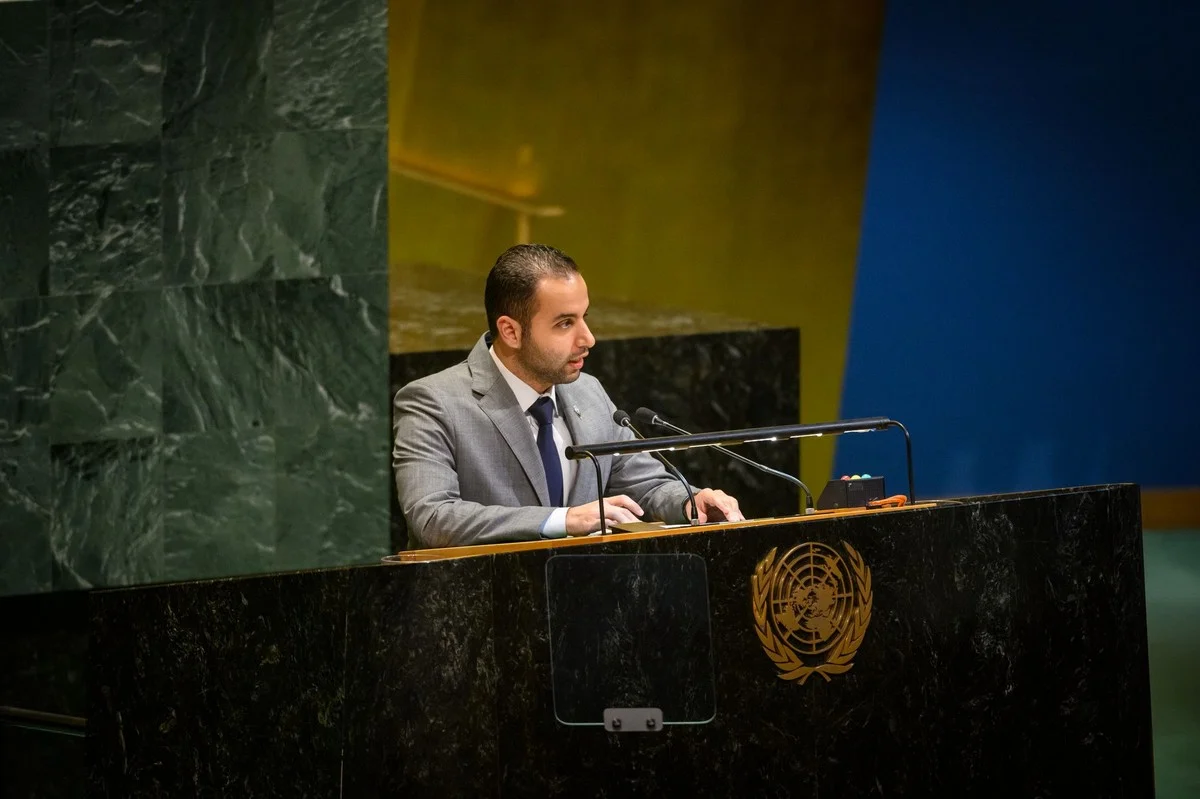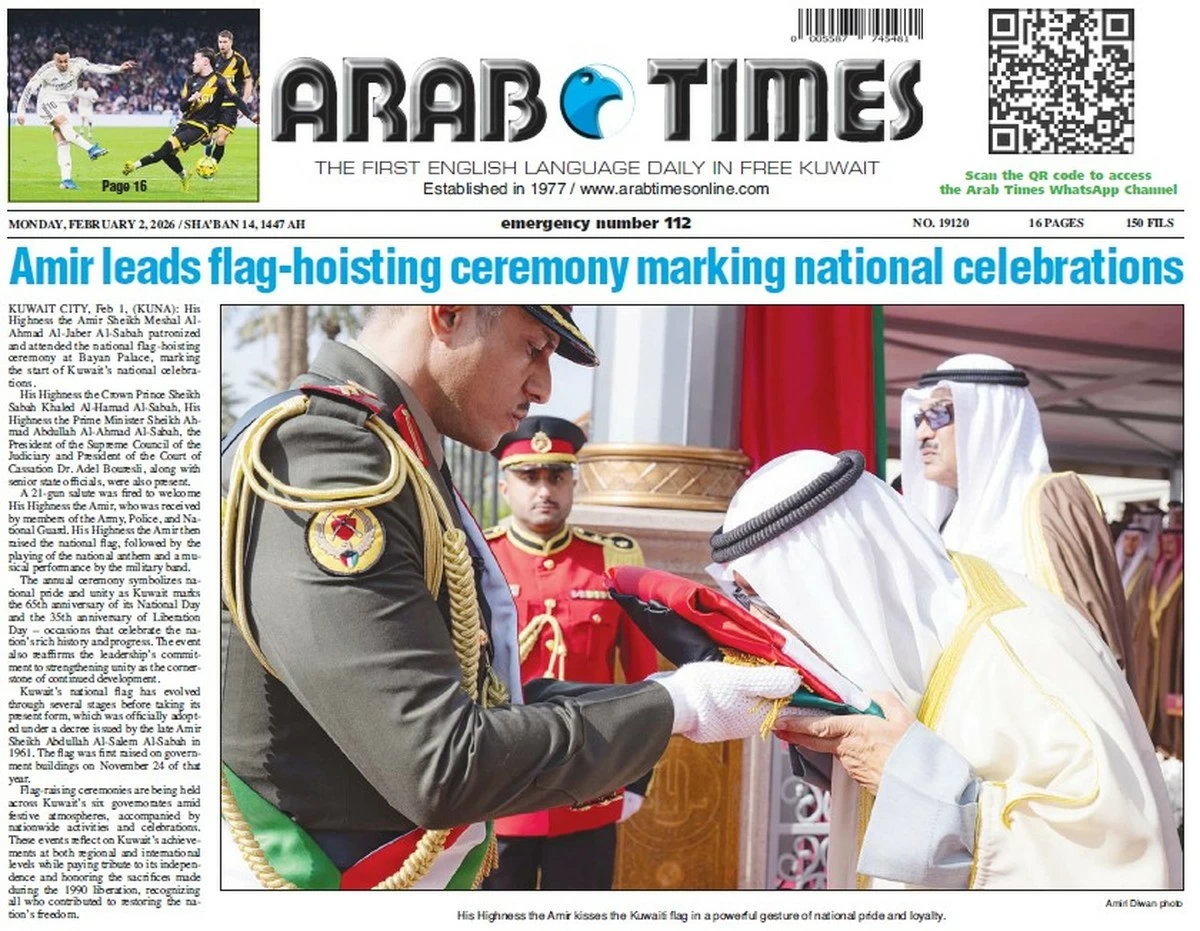30/10/2025
30/10/2025

NEW YORK, Oct 30: The State of Kuwait reaffirmed its unwavering commitment to close cooperation with the International Atomic Energy Agency (IAEA), underscoring that this partnership has become a cornerstone in developing national capabilities in health, agriculture, water, and energy.
This came in a statement delivered by Abdulaziz Al-Saeedi, Third Secretary of the Permanent Mission of the State of Kuwait to the United Nations, before the 80th session of the UN General Assembly on Wednesday, during discussions on the IAEA’s annual report.
Al-Saeedi said that the National Technical Cooperation Program (2020–2025) had implemented several high-quality projects supporting Kuwait’s national development plans. He added that relevant authorities are now working with the IAEA on a new cooperation framework for 2026–2035, aligned with the country’s development priorities and Kuwait Vision 2035.
He expressed Kuwait’s appreciation to IAEA Director General Rafael Grossi for his report and continued efforts to promote the peaceful uses of nuclear energy while maintaining the highest standards of safety and safeguards. Kuwait, he affirmed, fully supports the Agency’s vital role in enabling member states to employ nuclear science and technology for sustainable development under the motto “Atoms for Peace and Development.”
Al-Saeedi noted that current global developments show that maintaining nuclear security is no longer a political luxury but a necessity for the stability of the international system. Amid rising tensions and declining confidence in multilateral mechanisms, he emphasized the need to strengthen transparency and the IAEA’s independent technical role.
Kuwait, he added, values the Agency’s ongoing work to enhance monitoring and verification mechanisms and stresses the importance of providing it with adequate resources and expertise to ensure impartiality and independence, free from selectivity or politicization. He reaffirmed Kuwait’s position that the IAEA continues to fulfill its mandate under the nuclear non-proliferation regime, whose cornerstone is the Treaty on the Non-Proliferation of Nuclear Weapons (NPT).
Al-Saeedi urged all states that have not yet brought the Additional Protocol into force to do so, as it expands the Agency’s access to information and sites, thereby strengthening confidence and reducing suspicions regarding undeclared activities.
On the Iranian nuclear issue, Al-Saeedi said Kuwait is closely following recent developments, including the reimposition of UN sanctions on Iran last September, Tehran’s declaration that its cooperation agreement with the IAEA is no longer valid, and its announcement on October 18 that UN Security Council Resolution 2231 (2015) has expired. He warned that such developments heighten uncertainty about Iran’s nuclear commitments and regional tensions, urging renewed transparent cooperation with the IAEA to preserve regional security and stability.
He further stressed that nuclear-weapon-free zones are essential to collective security and key to achieving a safer, more stable world, especially in regions experiencing ongoing tension such as the Middle East. In this regard, he reiterated Kuwait’s commitment to establishing a Middle East free of nuclear weapons and other weapons of mass destruction, based on the 1995 NPT Review Conference resolution, reaffirmed in 2000 and 2010.
Al-Saeedi commended the progress achieved by the Conference on the Establishment of a Zone Free of Nuclear Weapons and Other Weapons of Mass Destruction in the Middle East, held under UN General Assembly Resolution 73/546, and recalled Kuwait’s chairmanship of the Conference’s second session, during which procedural rules were adopted and a Working Committee established to follow up on its work. He expressed hope that the sixth session, to be held under Morocco’s presidency, would advance efforts toward realizing this goal and reinforcing regional security and collective responsibility.
He also called on the international community to urge Israel, the occupying power, to accede to the NPT as a non-nuclear-weapon state and place all its nuclear facilities under IAEA safeguards. Israel’s continued refusal to join the Treaty, he warned, poses an ongoing threat to regional and international security. He added that Israel’s nuclear ambiguity and its threats of nuclear use undermine peace prospects and exacerbate tensions across the region.
Looking ahead, Al-Saeedi said Kuwait is preparing for the 11th NPT Review Conference in April 2026, viewing it as a crucial milestone following the inability of the 2015 and 2022 conferences to adopt consensus outcomes. He emphasized that the conference’s success hinges on addressing the root causes of past failures, particularly issues related to the Middle East and regional security, and responding to emerging challenges such as the militarization of cyberspace, nuclear risks in armed conflicts, and the erosion of trust in the arms control framework.
He underlined that achieving balanced, practical outcomes would revitalize the disarmament and non-proliferation regime and strengthen the IAEA’s credibility in an increasingly polarized global landscape.
Al-Saeedi reaffirmed Kuwait’s belief that addressing today’s nuclear challenges requires strengthening the multilateral system, promoting transparency, and ensuring full compliance with international obligations free of politicization. He stressed the IAEA’s pivotal role in upholding the integrity of the non-proliferation regime and ensuring the peaceful and safe use of nuclear energy in support of sustainable development.
He called on all member states to support the IAEA’s independence and technical capabilities, and to maintain constructive dialogue to promote global peace, security, and respect for international law.


